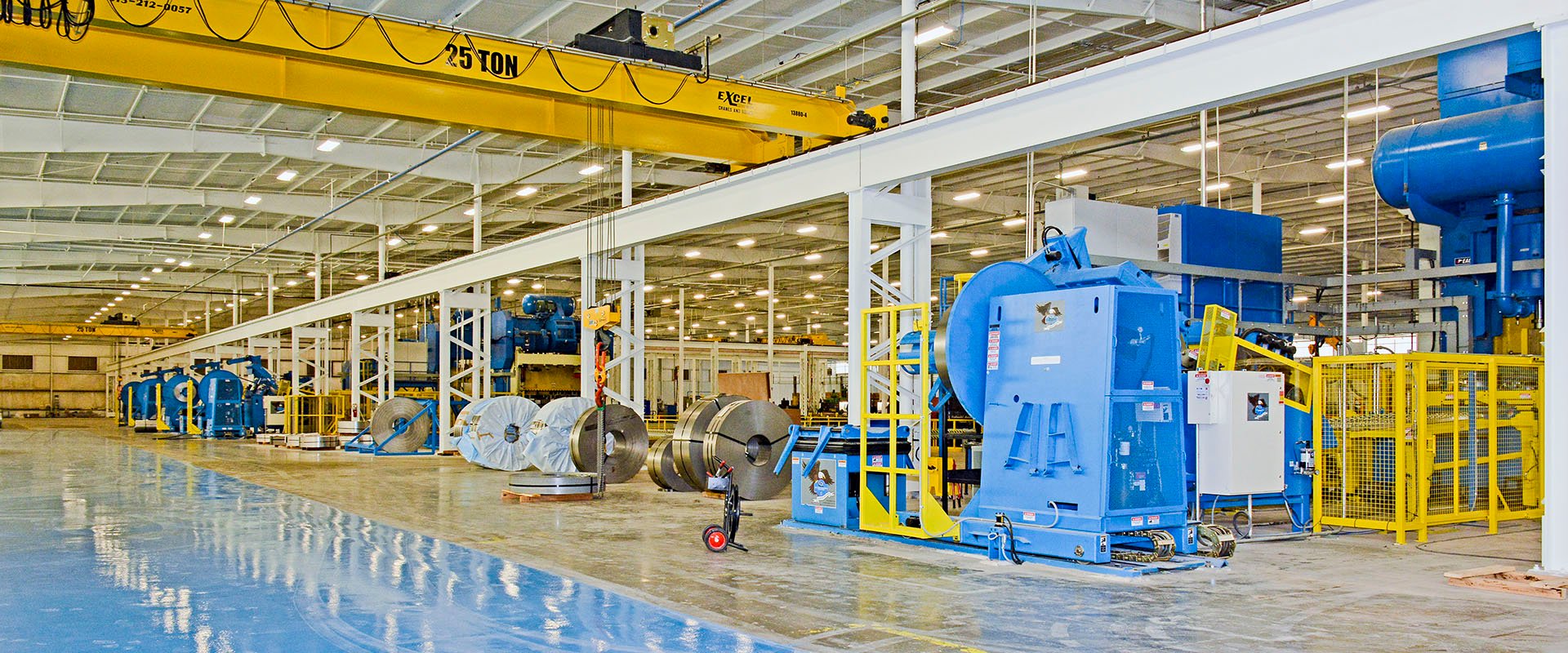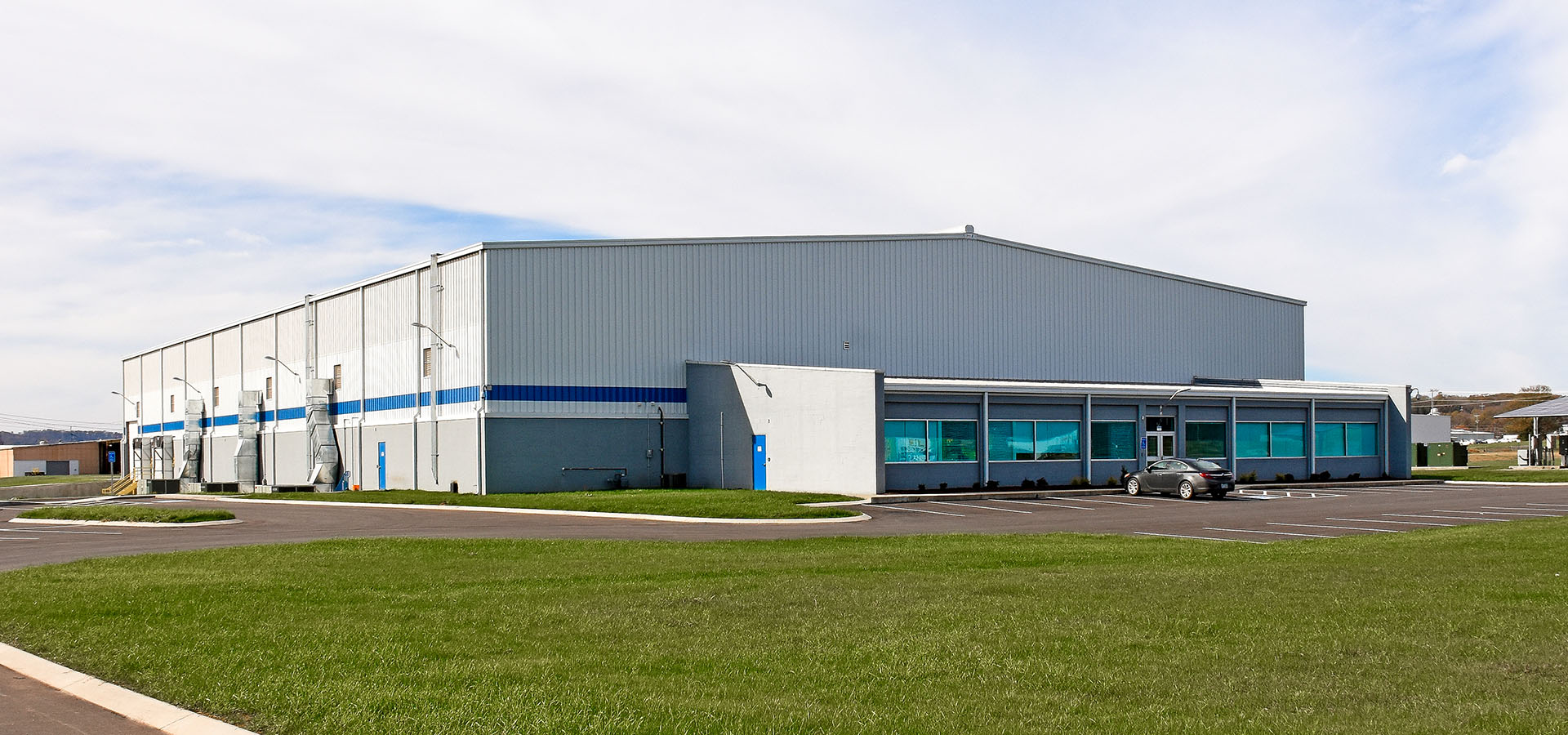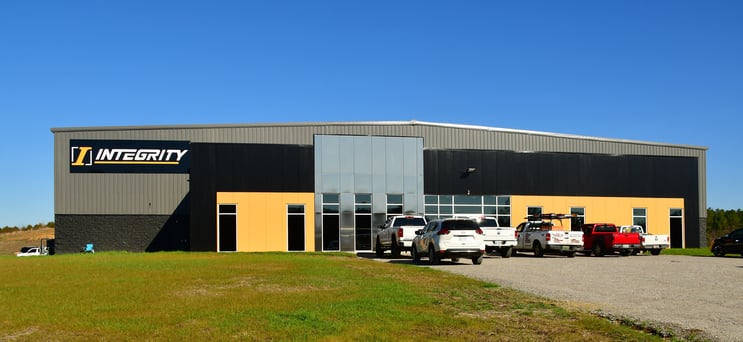When Huntsville, Alabama won the hotly contested competition for a new $2.311 billion Toyota-Mazda plant on January 10, 2018, the Columbia Daily Herald reported “the euphoria in 'The Heart of Dixie' was almost as intense as the University of Alabama’s latest national football championship.”
The new joint facility, with trial production currently underway, will employ 4,000 workers by mid-2022 when full production is expected to begin. Toyota will assemble new Corollas and Mazda will produce crossover vehicles at the plant, which will be designed to handle the manufacture of more than 300,000 cars per year.
That was good news for Tennessee, too, where Brindley Construction, LLC, serves Tier 1, Tier 2 and Tier 3 suppliers to the automotive industry.
Our recent projects have included a 62,000-square-foot addition to a manufacturing plant for international auto company Magneti Marelli; a 15,000 square-foot addition and retrofit of the existing 240,000-square-foot facility with a 550-foot press for parts maker North American Stamping Group, a 30,000-square-foot project for Integrity Tool & Mold, and a 38,000-square-foot addition for Tenneplas - Windsor Mold USA, Inc. that is currently wrapping up construction.
View Brindley Construction's industrial projects here >>
The Market Heats Up
“What we’re finding is that the automotive industry was depressed for so long, that they didn’t invest much capital in expansions for existing plants or buy new equipment,” explains Brindley Construction Director of Business Development J.J. Brindley. “They held out as long as they could. Now that the auto industry has rebounded, we are being asked to perform some jobs in just a few months that would normally take a year."
The Toyota-Mazda project has brought jobs and economic prosperity, as billions in investments come to the region, including those by suppliers looking forward to serving the Japanese automakers. Many parts manufacturers are opening new plants or relocating to states such as Tennessee, Mississippi, and Alabama as auto production moves from the traditional centers in the Midwest to the growing auto corridor in the South. State and local governments have been offering incentives for automakers to relocate to the South.
Parts Producers Need Fast Turn-Around, Cutting-Edge Facilities

Gone are the days of the old school manufacturing facility, a down-and-dirty and usually dingy warehouse building. That had been the model since 1913 when Henry Ford’s first conveyor belt-based assembly line started turning out his company’s trademark Model T.
“Manufacturing has changed from grease and oil and hot environments to facilities that are brilliantly lit and efficiently cooled,” says Brindley. “Many of these buildings are built to the level of a clean room on a medical or hospital site.”
In addition to meeting tight construction schedules, contractors serving auto parts firms also must adhere to the strict quality control requirements auto manufacturers require to accommodate the state-of-the-art equipment to be installed inside these facilities. In fact, the complexity of today’s parts-producing equipment now drives building design and systems. No more dark and dingy warehouses. Today’s look is bright, modern, and cutting-edge—and equipped with plenty of room for specialized equipment.
Building for the Long Term
Commercial contractors who serve Tier 1, Tier 2 and Tier 3 auto parts manufacturers are also paying close attention to the longevity of the facilities they build or renovate for their clients. Advanced finishes for corrosion prevention and reduction of damage to concrete surfaces are prevalent today. Top-quality air filtration systems improve the environmental quality for the manufacturing workers inside. Many project owners are interested in green building techniques and LEED certification, due to both environmental concerns and state incentives.
“With the manufacturing industry being highly cost-driven—even more now due to COVID-19—green materials and processes may be taken off the table if the owner is under tight budget restrictions,” according to Brindley, who notes that the prices of some environmentally-friendly materials are becoming more cost competitive.
Pre-engineered buildings are still a popular trend for saving materials costs. Today’s owners are prioritizing cost-efficiency by building less sophisticated ancillary facilities for existing plants, rather than building entirely new plants. Manufacturing space costs three-to-five times as much as basic distribution space and is not essential for functions like pre-sorting automotive parts, providing shipping and distribution space, and creating storage for warranty and replacement parts.
“Ancillary buildings allow our clients to free up manufacturing space, but still have suitable facilities very close to the main plant, which is critical,” Brindley says.
Specialty Work, Early Coordination Increasingly Critical
In manufacturing, many interior components must be custom-designed and engineered to meet a highly specific need. That, combined with the common need for fast-tracking, necessitates an extreme amount of coordination. Brindley prefers to work with clients from the beginning of their project, utilizing the benefits of design-build construction, including cost efficiency, time savings, pre-planning, and a collaborative nature. When the Brindley team is involved from pre-construction to close-out, your manufacturing project has a higher chance of being completed on-schedule and on-budget.
“Brindley Construction works with suppliers during pre-planning to identify long-lead items,” Brindley notes. “These materials are not standard or off-the-shelf, especially for projects involving robotics and magnetics. We have to carefully sequence the just-in-time deliveries in between all the concrete and steel work.”
The auto industry is undergoing a period of tremendous disruption. Influenced by new computer systems, new manufacturing processes, and innovative designs, neither vehicles nor auto manufacturing facilities look like they did even a decade ago.
The pressure is on all players—original equipment manufacturers (OEMs), auto suppliers, and the contractors who serve them—to continuously evolve and innovate. Supporting all of this is a strong base of digitization to keep pace with the rate of change. The new designs in the sector influence how vehicles operate and how systems work—all requiring a lot of electronics and software. While parts makers are now working more closely with OEMs, even participating in the design phases of components, commercial contractors are working more closely with clients from the earliest stage possible.
“When working with independent Tier 1, Tier 2 and Tier 3 suppliers, we like to become a true partner early on, during pre-planning,” stresses Brindley. “We want owners to know how long it actually takes to do things and we want to help them avoid potential pitfalls. The earlier we join the team, the more we can help our clients save time and money.”







Leave a Comment